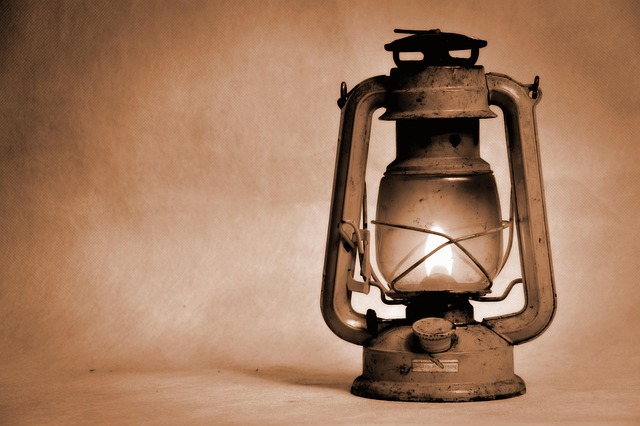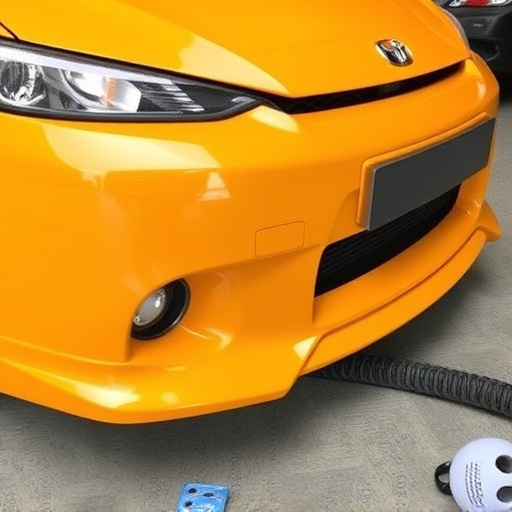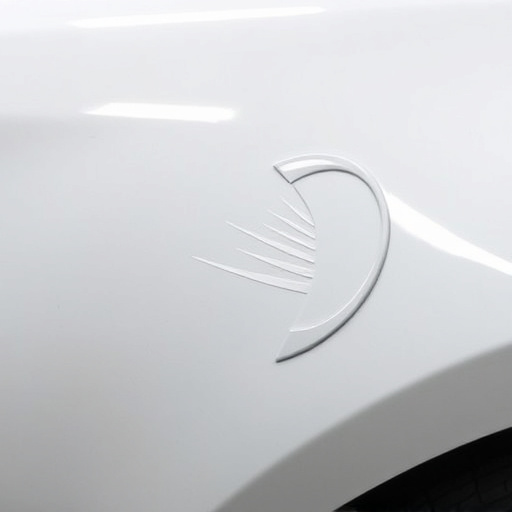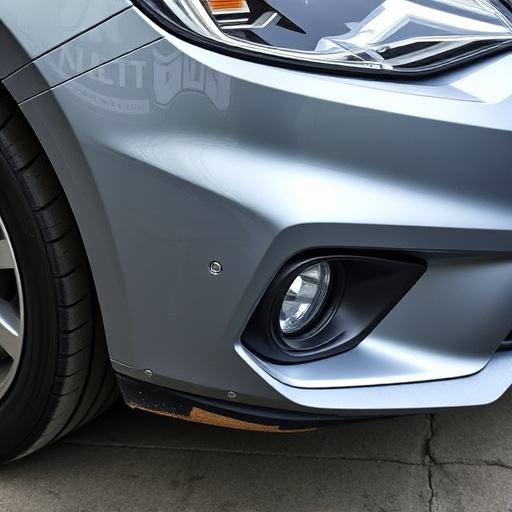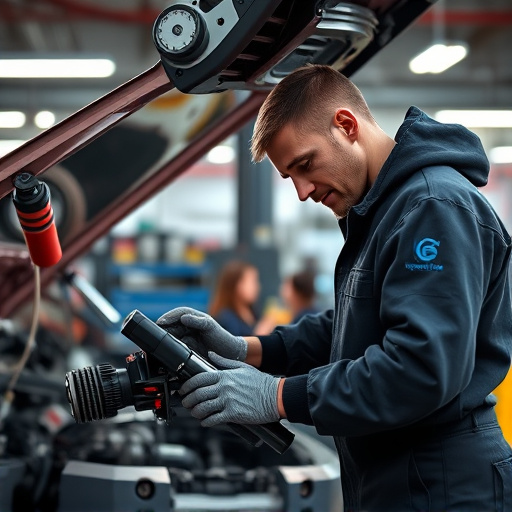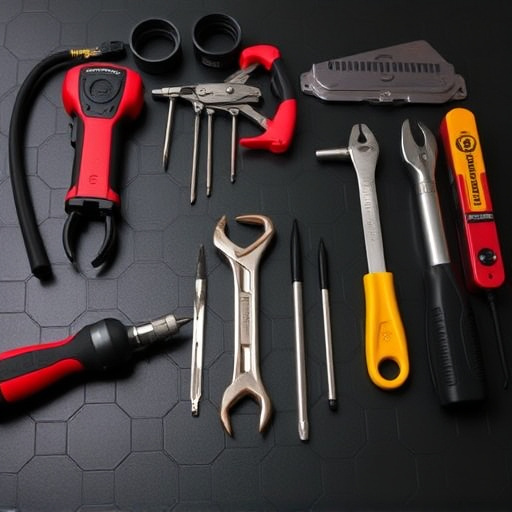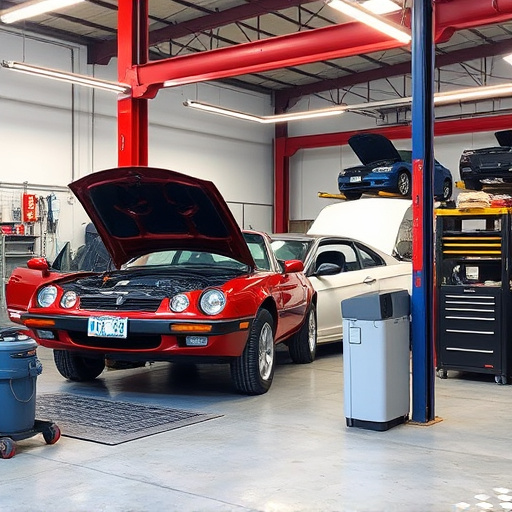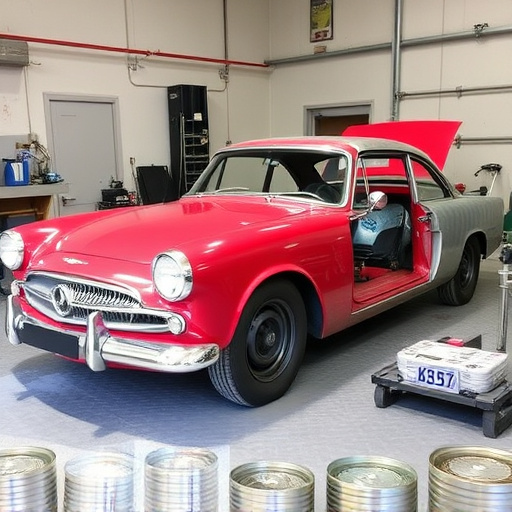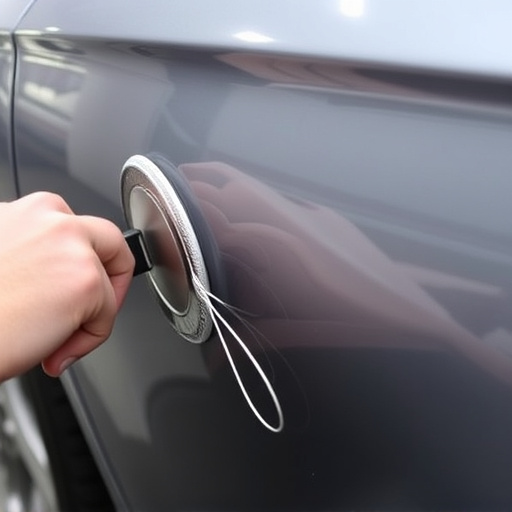Advanced vehicle systems pose safety challenges for technicians due to complex electronics and sophisticated mechanics. Technician safety equipment, including insulated gloves, protective eyewear, and respirators, is essential for mitigating risks during repair processes. Specialized gear ensures physical safety and enables efficient work, particularly in collision or hail damage repairs. Precision and efficiency are key in advanced vehicle systems, with proper equipment reducing errors and delays, fostering a culture of caution and accountability.
In today’s digital era, advanced vehicle systems present unique safety challenges for technicians. As vehicles become increasingly complex, so do potential risks. “Why Technician Safety Equipment Matters for Handling Advanced Vehicle Systems” explores how specialized equipment enhances protection for these skilled professionals. We delve into the crucial role of precision and efficiency in maintaining modern automotive technology while ensuring technician safety and accurate repairs.
- Advanced Systems Pose Unique Safety Challenges
- Technician Equipment Enhances Protection
- Ensuring Accuracy & Efficiency Through Safety Measures
Advanced Systems Pose Unique Safety Challenges

Advanced vehicle systems, with their complex electronics and sophisticated mechanics, present unique safety challenges for technicians. As vehicles become more interconnected and autonomous, the potential risks associated with diagnosing and repairing these systems grow. Traditional auto body repairs now involve intricate sensors, software interactions, and powerful tools that can cause harm if not handled correctly. For instance, working on modern electrical systems requires extreme caution due to high-voltage components, while precision is crucial when dealing with delicate micro-circuitry.
Technician safety equipment is essential in mitigating these risks. Specialized gear, such as insulated gloves, protective eye wear, and respirators, ensures technicians are shielded from potential hazards. Additionally, advanced training on the latest safety protocols for automotive repair is vital to keep up with the evolving nature of vehicle technology. This includes understanding how to safely dispose of electronic waste and responding appropriately to new types of fluids used in modern vehicles.
Technician Equipment Enhances Protection

Technician safety equipment plays a pivotal role in enhancing protection when dealing with advanced vehicle systems. As vehicles become increasingly complex with technological advancements, technicians require specialized gear to mitigate risks associated with intricate components and procedures. This equipment is designed to safeguard against potential hazards, such as electrical shocks, sharp edges, and exposure to hazardous materials commonly found in modern cars.
For instance, in automotive collision repair or car damage repair scenarios, appropriate technician safety equipment includes insulated gloves, safety glasses, and respirators. These tools not only protect against physical injuries but also ensure technicians can perform tasks with confidence and efficiency. In the realm of car body repair, specialized gear like welding masks and hearing protection are crucial to prevent long-term health issues resulting from prolonged exposure to intense heat and noise.
Ensuring Accuracy & Efficiency Through Safety Measures

In the realm of advanced vehicle systems, accuracy and efficiency are paramount. Technician safety equipment plays a crucial role in ensuring that intricate repairs and maintenance tasks are executed with precision and without incident. By adopting proper safety measures, technicians can minimize risks associated with handling complex components and sensitive electronics found in modern vehicles. This, in turn, leads to more effective work processes, reducing the likelihood of costly errors and delays that can plague a collision center or hail damage repair facility.
When properly equipped, technicians are better prepared to navigate the challenges posed by advanced systems. From protective gear that shields against potential hazards to specialized tools designed for delicate operations, these safety measures foster a culture of mindfulness and accountability. This is particularly important in settings like vehicle collision repair environments where precise alignment, meticulous welding, and careful panel replacement are essential to restore vehicles to their pre-accident condition.
In conclusion, as vehicle systems become increasingly advanced, so do the safety challenges they present. Technician safety equipment is not just a luxury; it’s an essential tool for mitigating risks and ensuring technicians can work accurately and efficiently. By investing in robust protection, workshops can foster a safer environment, enhance productivity, and ultimately deliver higher-quality services.

